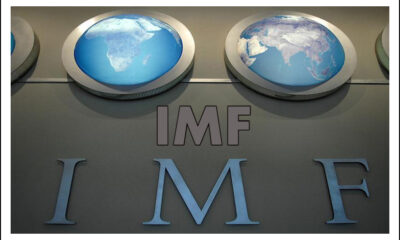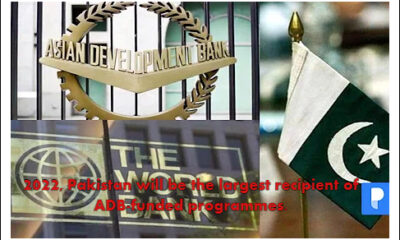Business
World Bank’s Women, Business and the Law Report 2023
Published
1 year agoon

According to the Women, Business and the Law Report 2023 from the World Bank, gender equality is a major contributor to economic growth and strength
Women, Business, and the Law Study by the World Bank, 2023.
According to the Women, Business and the Law Report 2023 of the World Bank, gender equality strengthens the economy. It leads in a higher rate of labour force participation and a more efficient use of resources. When women have equal access to economic opportunities, which increases productivity and growth, they may participate in the economy more completely and realise their full potential.
Women, Business, and the Law Report of the World Bank: Important Points.
Economic expansion may also improve gender equality because it increases funding for initiatives and programmes that support women’s participation, such as those that promote financial inclusion, good health, and an excellent education.Women are typically given more opportunities to work and start businesses when their financial situation is stable, which empowers them and raises their level of financial independence.
But, just enjoying excellent economic conditions is inadequate to ensure progress towards equality.Policymakers should work to narrow gender inequalities so that men and women share equally in the benefits of economic progress.
A critical first step is the adoption of legislation and policies that encourage women to enter and remain in the workforce, such as parental leave guidelines, equal pay for equal labour, and protection against sexual harassment.
Read Also:- National Security Day On March 4, 2023.
Women, Business, and the Law Report from the World Bank: Importance.
In order for women to start and grow their own enterprises, it is crucial to increase their access to capital and productive assets.Laws and regulations that improve women’s independence at home and in society are necessary for empowerment.Lastly, it’s critical to consider societal norms and attitudes that support gender prejudice and discrimination and are engrained in society.
Can women submit job applications the same way men do? Is equal compensation for equal work a legal requirement? Is it illegal to terminate employees who are pregnant? Does the law prevent discrimination based on gender when applying for credit? Does retirement age for men and women differ? When the answer is “no,” women are unable to fully contribute to their economies and are less able to make financial decisions that will benefit them, their families, and their communities. According to the most current research, just 14 advanced economies have legal gender equality in the sectors evaluated.The report Women, Business, and the Law highlights:
The World Bank Group report, Women, Business, and the Law, examines laws that affect women’s employment and entrepreneurship possibilities in 190 nations.The data offers quantifiable, impartial benchmarks for the global achievement of gender equality.The initiative intends to contribute to discussions on how to abolish discriminatory policies and increase women’s participation in the workforce.
The newest “Women, Business and the Law 2023” report provides an exhaustive analysis of the 50 years of progress made globally towards gender equality in the law.Since 1970, there has been an almost two-third increase in the average global score on the “Women, Commerce, and the Law” metric, from 45.8 to 77.1 points.
The study updates the data to show the state of women’s rights as of October 2022 and highlights the critical relationship between legal gender equality and women’s employment and entrepreneurship.
Women still have less legal rights than males have in many countries, and they are subject to legislative restrictions that limit their lifelong opportunities to work or own a business.In reality, progress towards gender equality has stalled to a level not seen in 20 years.Only 18 economies have amended their laws since 2021 to promote gender equality in all areas evaluated by Women, Business, and the Law, the lowest number since 2001.
The legal team has started looking at the procedure for changing laws using case studies from countries including the Democratic Republic of the Congo, Kenya, São Tomé and Principe, South Africa, and Togo. Further study is necessary to identify the variables that influence changes in order to better guide future policy and speed up the transition to gender equality.
Equal opportunity under the law is a critical first step in enhancing women’s economic empowerment internationally. Gender equality is a goal that women can no longer put off. The global economy cannot as well.

World Bank
You may like
-


Following the helicopter crash, thousands grieve for Iran’s Raisi in a march in Tabriz.
-


According to the IMF, the Indian economy will grow by nearly 6% this fiscal year
-


2022, Pakistan will be the largest recipient of ADB-funded programmes.
-


Bernard Arnault is preparing for retirement by training his children to run the company
-


Most Blinkit Stores Have Reopened Following Shutdown Due to Wage Protests, According to Zomato
-


NASA’s retired satellite is falling to Earth, but the hazard is minimal.
